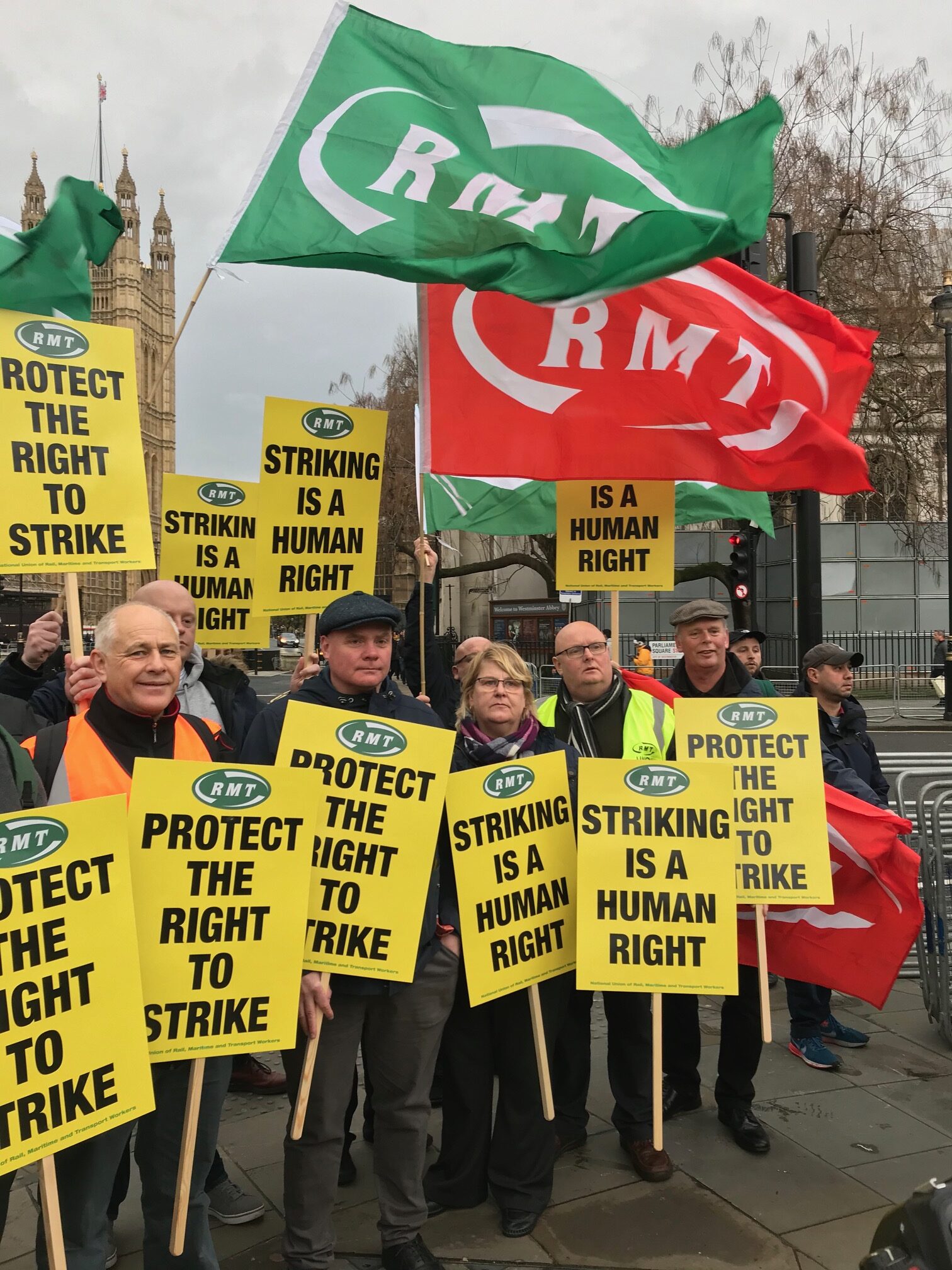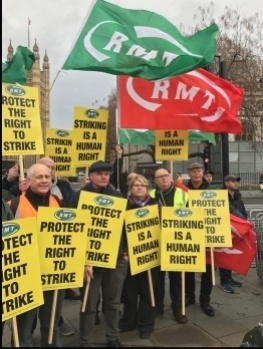Rail unions must prepare for action
Socialist Party members in RMT
Britain’s railway network has been hit particularly hard by the pandemic. Passenger numbers plunged by 80% as a result of the first lockdown and have only recently reached 40% of pre-pandemic levels.
The collapse in passenger fare revenue has led the government to suspend the franchise system and instead pay the private Train Operating Companies (TOCs) a fee to keep the wheels turning, eliminating all risk to their shareholders.
The government is currently bailing out the railway companies to the tune of £800 million a month to make up for the shortfall.
This is the opportunity the government and the railway bosses have been waiting for – the chance to get their hands on our hard-won terms and conditions.
Bosses’ attacks
Under the guise of reducing the life support payments, the ‘Rail Industry Recovery Group’ (RIRG) has been set up by the government to look at ways to get the industry back on its feet and adjust to post-Covid passenger numbers. However, a brief look at its latest document, the ‘Enabling Framework Agreement’, reveals what they are really after.
Just a few of the headlines: a two-year pay freeze; more ‘modern employment practices’ ie more flexibility from the workers and more power for the bosses; ‘agile working practices’ ie less stability for workers; and to ‘ensure pension arrangements are affordable and sustainable’ – expect attacks on pensions, particularly for new starters.
The two-year pay freeze is definitely not our contribution towards the recovery of the railway industry. It is simply a gift to the private firms who will take over the running of the railway in the future as it will permanently reduce their wage bill and further boost their shareholders’ profits. The railway pension scheme is one of the few remaining final salary schemes in the private sector. It offers a slightly more dependable income than inferior defined contribution schemes so common elsewhere. We must not allow the race to the bottom in terms and conditions to let rip in our industry!
The document proposes offering voluntary redundancy (VR) and redeployment as a way to reduce the wage bill. While many older workers might consider taking VR, we must argue against the selling of jobs. Once workers start to accept VR it becomes more difficult to build a campaign to defend all jobs – which are not ours to sell anyway. They are decent jobs that should be available for young people to take when they decide to start their railway careers in the future.
RMT has not signed up to the proposals contained within the document, despite the impression given by reports in the press. The union leadership has already launched a campaign to smash the two-year pay freeze, which is welcome. However, it is important that the RMT leadership makes it absolutely clear to members that by participating in the RIRG it will not endorse or even consider the atrocious proposals within their framework document.
Despite RMT General Secretary Mick Lynch emailing members explaining the union’s opposition to the proposals, we cannot overestimate the potential for the capitalist media to twist reality and confuse members into believing otherwise. Therefore, the leadership must redouble its efforts to ensure that it is made clear to the bosses, and the membership in particular, that we will not tolerate any attacks on our members’ jobs and living standards.
Legacy of struggle
Many railway workers enjoy considerably better pay, terms and conditions than workers in other industries, thanks to trade union organisation and struggle. But it hasn’t always been this way. Towards the end of the 19th century, most railway workers worked very long and unsocial hours on very low pay. The private railway company bosses fought a vicious battle for many decades to stop the workforce joining unions and steadfastly refused to recognise unions when they did join. It has taken the blood, sweat and tears of generations of railway workers who stood up and fought the bosses in order to win decent pay, pensions and shorter hours.
It is only over the last thirty years that railway pay and conditions have significantly improved, while many middle-class and university educated people have seen their pay stagnate and decline. The Tories and the bosses have never liked that and, if given the chance, they would knock us down a peg or two and see us scrabbling for work on zero-hour contracts like workers in so many other industries.
We are now about to confront one of the biggest onslaught on what our predecessors fought for and won in living memory. It is time for us to not only flex our muscles, but to show the bosses that we are prepared to ballot all of our members across the railway, and call national strike action across the whole network, if they come after our jobs, pay and conditions.
The railway workers’ unions – RMT, ASLEF, TSSA and Unite – must lead a massive struggle in defence of all railway jobs and our pay and conditions.








